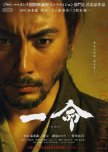
Hara-Kiri: Death of a Samurai
21 personnes ont trouvé cette critique utile
In this review, I will compare both versions but I will also review this film for its own merits to those who don’t want to bother with the original although I highly advice you to watch the 1962 version. I won’t talk about history since I already mentioned it in Seppuku’s review. You just need to know that Harakiri means a ritual suicide and an honorable death for the Samurai who has to literally disembowel himself and die.
While Kobayashi’s Seppuku (aka Harakiri) was a dark revenge human samurai story, Miike’s Ichimei (aka Hara-Kiri: Death of a Samurai) was more like a dramatic view of the Samurai honor that aims for emotional engagement. Just like Miike and his screenwriter Kikumi Yamagishi explained in the press conference, this film is based on the source material, so it’s not a nihilist revenge tale like the original. It’s more about what is the true essence of the samurai moral code. I was glad to find out that the screenplay was modified comparing to the original because that’s the whole point of remaking something; not to produce a replicate.
This remake was more melodramatic than the original, it focused on family relationships and struggles to survive more than Kobayashi’s version which made it feel dramatic and touchy; I don’t even know if it’s a good or a bad thing but as I mentioned above, I truly appreciated many modifications of the screenwriting, although I was a bit disappointed with others such as the flashbacks. In the original film, they were a key element and very intriguing to pick up and follow, not to mention the smart storytelling but in this version; it felt wrong at some points. Even the narration of Motome’s story by the retainer of the Iyi clan was also flawed but the story itself was very well-done especially the suicide part. I also appreciated the presence of intensity and conflicts even in a lesser amount.
If I talk about the film itself without comparing it to the original, I would say: do not expect another “13 Assassins”. This is Miike’s follow up to the latter but they’re totally different; Hara-kiri is a Jidaigeki (historical storytelling that doesn’t focus on action and uses it in small amounts) while 13 Assassins is a Chambara (Samurai bloody films that focus on action and swordplay) so do not anticipate to see heads rolling and arms chopped off. Although Miike can do gore so well and his bloody films are well received, he actually decided to drift away from his usual dish this time and try the human melodrama and Samurai codes of honor instead. He was successful even if many people were bothered by the non-13 Assassins setting. If you only liked the latter for the action part, then I am sure that Ichimei won’t be to your liking.
The acting was good. At first, I was afraid to see Ichikawa Ebizo play the role of Tsugumo Hanshiro and being an elder to actors that are only five to seven years younger than him but I was proved wrong on that side; he did a great job with his role especially with his tone but I still insist that Tsugumo Hanshiro’s character belongs to Nakdai Tatsuya only even if Ebizo did a great job with it. Other actors were also good; Eita and Mitsushima Hikari are currently one of the best actors in Japan. The casting for this film is very smart, it doesn’t leave you room to complain a lot about the acting even if the original was full of unbeatable figures.
The characterization was a bit exaggerated and flawed since Miike wanted to humanize his characters even more than they already are. The characters were very emotionally involved in a brutal way, maybe it can be considered as a good thing but the sensations of tragedy in the original were the right amount for this human Samurai story.
Hara-Kiri: Death of a Samurai is a beautiful, attention-grabbing film if we talk about visuals. Miike is such a professional director as where to place his cameras and how to take the shots. He’s also a perfectionist when it comes to using silence as a fierce way to create intensity. The cinematography was artistically eye-catching but that doesn’t deduct any points from Kobayashi’s Harakiri even if it was produced back in 1962.
The music wasn’t as compelling as in the original. It was noticeably absent at times.
Watch this if:
-You dislike Japanese Samurai classics and want to watch something recently produced instead. If not, then you really should give Kobayashi’s masterpiece a try as soon as possible.
-You like Samurai human stories that don’t focus on action (Jidaigeki).
-You like Takashi Miike but beware that this is quite different from his other films.
-You like touching somber stories.
Do not watch if:
-You’re not a fan of remakes; just stick with the original.
-You’re expecting another 13 Assassins.
-You dislike Samurai films.
Taken as a whole, Miike’s version of Kobayashi’s massive hit is a somewhat elegant, straightforward and a dramatically faithful manner of retelling the 1962 revenge tale. It’s watchable and enjoyable despite its flaws.
Cet avis était-il utile?

Snowy Love Fall in Spring
21 personnes ont trouvé cette critique utile
The plot is centered on the Japanese upper class in 1912, an era that’s very rare to find in Japanese or Asian productions in general which made me appreciate its use. Although the beginning was a bit slow, the love story was done quite well and let me tell you, this is not one of those cheesy stories where everything gets resolved with “I love you” and “I love you too”. This is a mature romance that goes in depth of emotions and struggles to reach its peak. While watching the romantic developments, you will get a taste of flowing innocence, painful denial, endless suffering, forbidden encounters as well as hunting desire that led the storyline into dark yet enjoyable corners because it was one of the basic chapters of this movie.
The story’s developments weren’t always right or very well done. Actually, some of them felt predictable and quite bothersome to follow such as familial quarrels and the barriers against the main leads’ relationship. However, if we judge it by the overall atmosphere; the screenwriting was able to pull it off and create a pleasant and mature love story.
The acting department was almost flawless. As usual, Tsumabuki Satoshi was able to get complete control of his role like he always does; that guy is an astonishing actor indeed. It doesn’t matter what kind of role you give him, he will manage to shine in it no matter how badly written it is. On the other hand, Takeuchi Yuko happens to be an expert in romantic stories. Of course, I am not denying her acting skills but if you saw her other romance oriented productions, you will notice that she always manages to create gripping chemistry with her partners and this movie wasn’t any different.
Spring Snow is all about chemistry, so if Satoshi and Yuko didn’t pull it off the way they did; everything about this movie would’ve fallen apart. It was so consuming and very different from other Japanese productions; from now on, that’s how chemistry is supposed to be done. Moreover, the characters’ development was quite neat and enjoyable overall even if some of them felt quite messed up at times.
You should watch this if you’re looking for mature romance, great acting and astounding chemistry. Needless to say, if you’re expecting something fluffy and cute then you’re definitely in the wrong place.
Cet avis était-il utile?
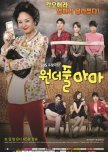
I don’t watch family dramas because they’re not my cup of tea but this year I came to watch two family dramas at the same time; this one and ‘I Summon You Gold!’ because of a long story that I won’t trouble your ears (or more specifically your eyes) with.
So what is this about? It’s one of those lengthy Kdramas produced in a non-stop way every year. It has all the elements that a family drama should have such as familial struggles, birth secrets and old respectable figures. There are also light romantic stories that owned about half the drama.
If I had to state the facts, I would say that this drama’s screenwriters weren’t good enough to make the drama interesting until the very last end. It’s a given that Korean family dramas drag and contain many filler episodes but despite that fact, the drama was deliciously entertaining until the 39 or the 40th episode when the writers tried to get smart by adding some twists to the storyline, but guess what? It was an epic failure because… hello!! Family dramas don’t need stupid twists to be good; it needs a complete control of the run time by using the family theme. Furthermore, the screenwriters conducted a mess by cutting off characters without a previous notice or a proper explanation. They also threw meaningless hints and rushed things out at the end; okay, I won’t make them bear all the blame for the last part since it’s not their fault that the drama was cut short to 48 episodes instead of 50 but still, they could’ve made a proper ending considering the fact that this is a long drama.
The cast was reasonably fitting and well chosen. There were some really good actors in here but I can’t say the same about characters since some of them felt all over the place at times. However, the characters’ development was remarkably magnificent.
Now, if I have to state my subject point of view, I would say that this drama was enjoyable overall even with its shortcomings. And that’s coming from a person who doesn’t (as never) watch long family dramas.
In conclusion, I won’t advice anyone to watch this or not because that’s up to you to decide. Just keep in mind that this is a long family drama with notable screenwriting issues that needs a strong commitment and a long breath to finish, but it also has a nice set of cast and it can be somewhat pleasant to watch.
Cet avis était-il utile?
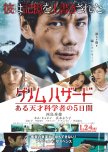
Depending on the angle you judge it from, Genome Hazard can be considered as a very engaging thriller. At the matter of fact, the picture was divided into several genres. I wouldn’t say they were in complete harmony but some of them worked out in a good manner. The mystery/thriller part was pretty well-executed; the build-up of suspenseful events was definitely able to trigger the audience‘s attention. At some point, you’d find yourself relating to the main character and trying to solve the puzzling equation by his side: a normal man with a double identity and an apparent amnesia, or is it? It’s a complete relief that the screenwriting didn’t try any mischievous attempts to out shadow its viewers.
The other part is Science fiction, I completely respect the idea of turning this into some type of a medical thriller with all of those virus/pharmaceutical schemes but I am sure that the screenwriter (or more like the original novel perhaps) didn’t know how to handle the part overall. Somehow, it felt a bit sarcastic towards science even in a discreet way. This opinion is not based on the fact that I am a scientist myself – although it did trigger me a little. I believe the outcome they resulted from that long science fiction battle was absolutely disappointing. I mean if you were going to go all out and crazy about a scientific fact then you should’ve proved that the trip was worth it. The scientific part obviously failed at portraying a deep meaningful issue.
Genome Hazard had attempts of building romance as well but I don’t think it was successful at that part either. There were too many love interests but none of them came out convincing. Well, it’s unavoidable because when you’re making a film that’s packed with different themes, it comes natural to fail some genres for the favour of others. The thriller/mystery part outclassed Sci-Fi and Romance by miles.
Nishijima Hidetoshi was the absolute star of the picture. That actor’s theatrical acting style and gaze always had me at the edge of my seat; he will always make his character so charismatic and attention-grabbing. His role in this film proved me how much I love to see him on screen. By his side was the Korean actress Kim Hyo Jin; this was the first time meeting her and I would say it was a pleasant introduction. The girl has some cool talent in her; I deeply respect her dedication to learn Japanese solely for this role. The rest of the cast were also fitting; Maki Yoko and Ibu Masato are few to mention.
This film’s directing was so fine. I am not so familiar with Kim Sung Soo but his editing style and camera angles were pretty well-handled. The cinematography was also good and rather catching. I don’t have a clear memory about the musical note though, I think it wasn’t so different from what normal thrillers use as their soundtracks.
Watch if:
-You like thrillers, Japanese or Korean style.
-You like intriguing mysteries.
Do not watch if:
-You don’t appreciate thrillers.
-You’re looking for a strong deep Sci-Fi.
Genome Hazard is a very captivating thriller at first sight but it’s true that it fails at building a coherent storytelling. It’s not perfect by any mean but it’s unquestionably entertaining and engaging in its own way.
Cet avis était-il utile?
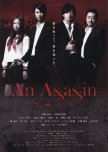
Don’t get the wrong picture, I like brainless action and all but it’s a fact that not every director can make it entertaining. I have my specific short list of directors that I would gladly watch their action productions anytime and Go Ohara doesn’t belong to that list Instead, he made a respectable piece of work that doesn’t wholeheartedly depend on action and guns’ play.
This film has more sides to it than the action part. The story of a cold-hearted assassin thinking twice about his life because of a girl is not original in any way but this isn’t exactly a romance, the core of this film is the friendship. Ryo and Misaki’s bromance is priceless, especially after the revelation of their past relationship and the way they survived together; that was probably my favorite part of the film. The acting may not have been the best, seriously it was unbalanced at many points but the main characters were good enough to make the whole department satisfying and the film watchable.
Action wise, this film is low leveled; it’s not because the lack of action but many moments seemed fake. An action lover doesn’t look for realism when watching the genre but it doesn’t have to be plainly obvious like that. Some fighting scenes were uneven and incoherent but the shooting angles and techniques made it up for the bad guns’ play choreography.
The ending of this film was quite expected; I’ve seen that kind of finale repeating in many similar films that’s why I had some hope that it will end otherwise. This is not a fluffy storyline and I consider that a strength point.
Watch if:
-You’re looking for a decent Japanese action film.
-You’re in the mood for action but not the shallow type.
Do not watch if:
-You’re looking for something fluffy.
-You’re looking for a romantic story.
An Assassin is a good action films that stands out a little from the usual Japanese norm. It’s not a masterpiece but it’s definitely a nice watch.
Cet avis était-il utile?
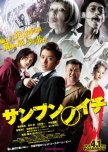
The film starts out very simple; a bank robbery already took place and the three culprits are trying to divide the money amongst themselves. Things start to get fishy between the three partners as schemes and hidden motives start to surface. An endless game of trust begins to shatter their relationship. However, the plot doesn’t keep lingering on that narration pattern. After a while, we get countless of smartly inserted flashbacks which explain our main characters, the people who threatened them and their motives to commit a robbery.
Saibun no Ichi screenwriting is pretty clever at grabbing the audience attention. It kept adding a twist after the other and a development after another which had a strong effect to keep me glued to the screen. It even triggered a nice guessing game about the following events. However, the script wasn’t perfect by any mean. It failed at balancing comedy and crime. It’s obvious that those two genres are entirely different but it’s not supposed to be this confusing. At some time frame, it became painful to set my mind: am I supposed to laugh or feel the chills? Before I knew it, the scene passes by as if nothing happened. After all, it was some type of a crazy film. Those of you who are well familiar with the “weird Japanese cinema” will know what I am talking about.
Unlike most Japanese film, One Third had some exceptional conversations about Hollywood films, actors, directors and even similar settings. One of the main characters is an actress while the main character himself aimed to become a director just because he was fascinated with Quentin Tarantino’s filmmaking. I found it rather innovative to discuss those types of topics in a Japanese picture. It’s also ironic because the goofy references they mentioned worked so well in building many scripts and swindling games inside the story. It felt like the whole film was some kind of a big fat play.
Now, let’s talk about the acting. Honestly, I didn’t feel so good about the leading cast but they were surprisingly fine. I have some type of issues with Fujiwara’s overacting, he was originally a theatre actor and he doesn’t seem to set a clear barrier between the stage and the big screen. However, to do him credit; I noticed obvious improvement in some of his recent works. One Third’s leading role counts for his favour. He even made his character appealing enough, aided by the fine characterization of course. Then we have Tanaka Koki, I apologize to his fans but I never for once thought of him as a good actor. His character saved him though, he was interesting as the ruthless cool Koji, even the acrobatic and fighting scenes he had were pretty good.
Other notable actors are definitely Kubozuka Yosuke and Nakashima Mika; the first played a lizard-like complex character while the latter played a very convincing ex-actress. Both of them led pretty well-crafted performances with those odd characters. But then again, all of this film’s characters are a nice bunch of anti-heroes.
Actor turned to director Shinagawa Hiroshi did a fine job with directing and writing this piece, I especially liked the visuals, some of the little details in the background made this film rather special.
Watch if:
-You like different unconventional Japanese films.
Do not watch if:
-You don’t appreciate crazy/wild Japanese cinema.
-You dislike Japanese humour.
Sanbun no Ichi is a nice surprise that came at a whim. It might be too crazy for some tastes but I always had a soft spot for untraditional Japanese filmmaking. This is a very entertaining picture in my personal book.
Cet avis était-il utile?
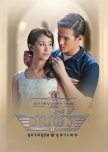
Khun Chai Ronnapee is the fifth and the last part of the Suparburoot Juthatep’s series. And it was such a fine closure. The younger brother was honestly my favourite; he has this cheerful sneaky playful character that makes you love him. Therefore, I was looking forward to his story and I wasn’t failed. Chai Pee’s character was able to show its existence ever since the four previous parts; he was always there to cool the air and to play the role of the mischievous brother.
The last story included an actress as the female lead but the showbiz element wasn’t as glamorous as it was supposed to be. The love story was alright, it had many turns but it ended up going in circles at some point. The most important thing is: the chemistry was pretty much the best in the Suparburoot Juthatep series; it obviously tops the other four stories even if all of them had good chemistry.
In this part, Chai Pee’s character was able to develop from the playful little brother to the responsible lover-boy who wants to take care of the woman he loves and her family. His solder side that he showed in the latter episodes was also a good side of his character as well. It was nice to see his transformation even if it was pretty much predictable. The side love stories were also fun and cute to follow, they turned pretty cheesy at some point but they added a good flavour to the drama.
Something else added great colours to this part: the presence of the four other couples throughout. I swear that made me add the half to my overall rating; it felt so wonderful to watch the other couples helping Chai Pee and showing their love for each other. The moment the brothers stand in one room holding their wives was precious; I really wish this was shown in other parts as well. Also, the bromance was seriously and deliciously present in the last story, the way they worried, cared and cried for their younger brother was amazing. That’s why; this part gets more points.
The acting was fine as the usual formula of lakorns; James was a newbie in this series so he deserves encouragement for what he did here. His female lead was a little better than him only because Mint belongs to the industry more than him. As for characters, they were pretty much watchable; but of course you would’ve guessed by now that the second female lead was evil as her sister in Chai Pat’s story if not more. Most second female leads in Thai lakorns are so overdone with their evil tricks that it becomes unbearable after a while.
Watch if:
-You liked any of the previous parts.
-You’re looking for a great chemistry.
Do not watch if:
-You’re expecting something impressive.
Khun Chai Ronnapee was a good closure of the Suparburoot Juthatep’s series. It had great chemistry and yummy bromance.
I will surely miss the five Gentlemen of Juthatep.
Cet avis était-il utile?
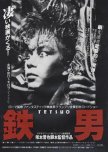
Tetsuo: The Iron Man
17 personnes ont trouvé cette critique utile
When reviewing a gory film, I usually start off with warnings so let me put this out. Tetsuo – The Iron Man is certainly not your stereotypical kind of film:
Surrealist: check; it will make you think more than once about its contents.
Bizarre: double check; if you think you saw the entire cinema craziness –think again.
Excessively violent: Triple check; this film belongs to my goriest films’ list and I sure as heck saw a wild bunch of those. It would be an extremely disturbing and trippy watch for gore-haters.
Hidden message: full score check. It’s what makes this picture special in the first place. There was a pinpointed meaning behind the whole mess.
Horror and Sci-Fi aren’t my thing. I don’t like the genres separately and I certainly don’t care for them combined. But I do have a special liking to the underground director Tsukamoto Shinya –a perfect crazily talented Japanese director to add to my favourite bunch.
Horrifically graphic, the film never ceased the use of violence and gore to highlight its events and developments. Even the introduction was brought under the wing of visual grotesque. I wouldn’t deny that brutal violence, dismemberment and bloody chases are to my liking but that’s not the main reason I highly appreciated this. As I said, I am used to gore especially the Japanese type but they rarely have a meaning behind the acts of violence unlike Tetsuo.
Tsukamoto used the incessant gore to imply its vision around deep fears of technology and how far its development can mess a man’s life. He spotlighted the transformation and the resistance in a grabbing visual ceremony of grotesque. Of course, this is an over-the-top pessimistic view of the relationship between humans and the increasing threats of technology. That aside, the surrealistic nature of the film will make you draw your own interpretations as long as you pay attention to the little details.
The choice of the black and white was spot on. It only aggravated the impact of the picture without damaging the brutal gore. It added a striking darker tone to the already pitch black shadowy theme. Moreover, the leads’ acting was obviously matching the choice of colours giving it a monistic feel. However, Tsukamoto Shinya was undeniably the main performer of this picture. He was the one who wrote, directed, edited and even added his own special effects to the film. His camerawork, masterful close angles, engaging cinematography and hard-core choice of music were one of the finest I saw in gory films.
Tetsuo is one of those surrealist crazily bizarre Japanese films. Its heavy load of gore and brutally graphic content is a great mean to ensure its purpose.
Cet avis était-il utile?
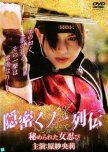
The Secret Female Ninja
16 personnes ont trouvé cette critique utile
I watched this because I thought it would be an enjoyable Ninja film and heck, I was so wrong! Everything about this film is amateurish; from the directing, the storytelling, the action and the dreadful acting. It’s true that the film tells the story of a female shinobi (ninja) but everything felt all over the place and absolutely predictable. The plot wasn’t coherent at all; it felt unbearably weak with many stupid cheesy dialogues and events.
The action was so freaking fake in a foolish bothersome way, this is a disgrace to ninjas; if they were still alive they would come and kill everyone in this film and get over with it. Now, the mature scenes, they were terrible and it’s not because I hate mature scenes but because they were random, unbelievable and used as time-fillers. Some of them didn’t even make sense to show, they were crappy meaningless porn.
The acting was a deep disaster, the female lead’s expressions almost drove through the wall; she was painful to watch and the rest of the cast didn’t do any better either. I was thinking that they maybe these guys are porn stars or something? Because that would make sense if this was supposed to be porn with a stupid plot but I don’t think so. The actors were originally bad and their characters were even worse than they were or it’s their outrageous acting that made them feel that way.
The cinematography was dumb, the costumes were pretty bad and the music was horrible. I told you this is an amateurish film which I believe it had one of the lowest budgets and it would have been better if they didn’t make it in the first place. Re-watch? Never in the world, it was an absolute waste of time the first time around so how on earth do you expect me to repeat that?
Watch if:
-I won’t recommend it to anyone so this will remain blank.
Do not watch if:
-You think this would be a good ninja story.
-You think there’s any decent action in this.
-Well, just don’t watch it if you don’t want to waste your time.
The Secret Female Ninja is an absolute amateurish film containing a dumb storyline and horrible acting. Hey film, give me my 90 minutes back!
Cet avis était-il utile?

Guinea Pig 2: Flower of Flesh & Blood
14 personnes ont trouvé cette critique utile
Once again, this is not real; it’s a fake!
Flower of Flesh and Blood is the sadist, sickest and bloodiest part of the pseudo-snuff Guinea Pig series. Once again, no plot was used; it’s just the director of the film Hideshi Hino himself abducting a woman, tying her to a bed then cutting her body parts little by little. He was wearing samurai armor no less! His place was haunting and dark in too many ways. This film excels in showing pure gore elements like the slow and neat cuts with blood’s splashing and overwhelming the little shooting piece. There are also the little details of cutting and breaking bones that are usually ignored in other gore films.
Although once again, the victim’s pain was oppressed leaving a lingering displeasure but I think it was used to make the film less disturbing than it already is. I don’t understand that part, if they’re going to make such a brutal sadist film then they should’ve went all out. Anyway, it was a little let-down that’s all.
The special effects were very well handled in this film even more than in The Devil’s Experiment; probably because this deals with many blood splashing and dismemberment scenes unlike the first one but they totally nailed it. No wonder many people thought it was real.
Extreme gore scenes were used in this film. Some sick samurai think of women as pieces of art that can be treated as blossoming flowers while they are cut to bits. I think the little dialogue lines used in this film helped to draw the concentration to the sadist acts instead of anything else. Despite the lack of a plot, this film handled its strength points in a good way. However, this can’t get any high rating because as I always say; gore for the sake of gore don’t deserve much appreciation. There needs to be a story and a meaning behind it all.
Watch if:
-You like the Guinea Pig’s series because this is probably the best part.
-You like extreme sadist gore films.
Do not watch if:
Just don’t watch unless you qualify for the two mentioned conditions above. Oh, and you’re not under 18. This is really brutal stuff, you’ve been warned.
Flower of Flesh and Blood is possibly the best part of the Guinea Pig’s series; it tends to show the true nature of sadist brutal and sick type of gore. It makes it hard to watch the other parts without high expectations.
Cet avis était-il utile?
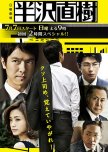
Hanzawa Naoki is the kind of dramas that bumps of the crowd to keep you at the edge of your seat through its astonishing screenwriting, gripping events and high-class acting. This drama didn’t get the highest rating in modern times for naught. It was well worth it from any angle you look at it. You may be wondering: what’s so special about this drama that made people go crazy over it in Japan while the international audience couldn’t care less about it? To find out the answer I had to start this adventure and jump into a world I am not very familiar with: The world of business, bankers and salary men.
Hanzawa Naoki deals with the world of banks which is a non-famous theme for Asian dramas. The story brings the harsh facts about that world to light while focusing on the intense fights that the male lead has to go through in order to survive in that field without abandoning his ideals. What this drama outshines at is the stunning screenwriting and the solid characterization; the storyline was so involving with many twists and turns that will make you eager for more. The smart writing managed to make the events flow by in a thrilling and gripping way without being heavily present or irrationally exaggerated. In terms of directing, I would say that this drama’s business theme was perfectly expressed whether though the well-made cinematography or the nicely chosen shooting angles.
The acting department in this drama was superb; every actor pulled his role in a great way. Extra credits to one of the most phenomenal actors in Japan: Sakai Masato. That man’s acting skills are no joke; he can pull off his roles in a brilliant way and his Hanzawa Naoki’s portrayal is the best proof; he’s a genius actor indeed. And since we’re talking about acting skills, I have to mention the second best actor in this drama: Kagawa Teruyuki who was super amazing as Owada.
Speaking about characters, Hanzawa Naoki owned the show and no one succeeded in stealing the spotlight from him. He’s an overwhelming smart character that will make you absorbed in his intelligent choices and actions. He counts every situation he comes across and he’s always one step ahead of his opponents. Whenever Hanzawa puts the fierce look on his face and starts the “Payback”, get ready to be blown away by his unique way of flipping tables around. As for other characters, each and every one of them was important for the storyline’s development and the characters’ interactions that were beautifully accomplished.
Taken as a whole, I am fully aware why would everyone avoid this type of drama; it has a non-enjoyable theme for most people, no romantic plot and no idol stars as main actors, that’s why I am pretty sure it’s not directed for everyone. However, that doesn’t deny the fact that this is one the best made dramas out there even if it doesn’t get the appropriate attention.
Cet avis était-il utile?

I have a confession to make; I always had a serious love-hate relationship with Sion Sono. It’s not because of his over the top style. Takashi Miike‘s more sadistic but he’s still one of my top favourite directors. However, all of my feelings toward Sion’s filmmaking changed to the positive side after this. He definitely amazed me.
The story was unusually chaotic. Tokyo Tribe is a Hip-Hop musical and I don’t even like Hip-Hop but man did it sound completely right! The plot centre on Tokyo’s different gangs that are continually at war with each other until a trigger sets them all off. 95% of the dialogues were rapped out. Sion made almost all of his characters rap their parts in a charming street symphony.
I would agree with you if you said this film was over the top, entirely sexist, brutally violent and edgy. However, those facts don’t deny that Tokyo Tribe is one of the best finely made films of 2014. The action sequences and characters’ interactions were eye-catching and marvellously made.
Sion’s explosive style was fast-paced –as always– which gave the film extra entertaining value. I didn’t like the CGI and some fallen parts here and there but I was certainly impressed to know that he actually cast real-life street tattooed members for his picture. They were undeniably fit and perfect for their roles.
Other actors, namely the veteran Yakuza star Takeuchi Riki, Sometani Shota, Suzuki Ryohei, Young Dais and Kubozuka Yosuke were strongly fit for their roles. I certainly didn’t think I would come to love their characters like that. The solid portrayal of bizarre and weird personas isn’t an easy job to do and this film’s cast brought it to perfection.
Tokyo Tribe was a throughout pleasurable mess of comedy –even parodies– action and some lessons. It’s not up to everyone’s taste but those who appreciate Japan’s weird filmmaking are in for an exciting treat.
Cet avis était-il utile?
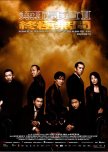
Infernal Affairs III
15 personnes ont trouvé cette critique utile
The first film felt complete but that didn’t stop producers from creating back stories as well as future presumptions and inserting other characters in both Infernal Affairs II and III to make everything sound finalized and perfectionist. Maybe that’s overdoing it but I still wouldn’t consider it wrong.
Infernal Affairs III picks up after the first movie; it shows the life of the remaining character after the last outcome of Infernal Affairs but that doesn’t deny the fact that the first movie’s characters were back in flashbacks to tell a different back story that felt more spiritual than twisted. What makes the matter more complicated that the search for moles inside the police isn’t over yet. This time around, it’s two cops tailing each other in the most twisted suspenseful way.
The screenwriting didn’t lose its touch; it managed to bring great Suspense/Thriller moments even with flashbacks and past moments. Of course, the flashbacks I am talking about aren’t extracted from the two previous movies; they’re specifically made for Infernal Affairs III to give it more depth and a proper back story for the few new characters introduced in this movie. The plot was interesting to follow even if it wasn’t twisty as the first two movies.
As Tony Leung, Andy Lau came back to lead this movie (unlike the second Infernal Affairs), the acting department felt extremely satisfying and with the addition of Lai Leon, it felt like perfection when watching those three around. Of course, Anthony Wong and Eric Tsang are like pepper and salt for the Infernal Affairs trilogy.
The characters’ development was quite appreciated; Ming was really twisted with a pretty convincing turns in here; I was quite surprised by the last twist for his character. The new characters added a great taste to this movie especially Yeung who made me suspect him and sympathize with him at the same time. I think that’s the strength point of both Infernal Affairs II and III; the screenwriters added intriguing characters who don’t allow you to complain about the pacing and characters’ conflict after the outcome of the first Infernal Affairs. What I didn’t appreciate was the somewhat forced addition of Yeung’s character in the past stories when it’s obvious that he wasn’t even mentioned once in the past two movies. Also giving Dr. Lee a bigger role in this movie was unnecessary in my opinion.
Infernal Affairs III is worth the watch if you saw the other two but you can also watch it right after the first movie without looking into the second one since the latter isn’t related to this film’s plot in any way.
Watching the Infernal Affairs trilogy back to back as I did was one of the best things to do when you want to watch all the sequels but watching Infernal Affairs only like many others did isn’t the wrong thing to do but you will be missing two of the better characters’ addition: Hau and Yeung. That’s why I still recommend it as a trilogy.
Cet avis était-il utile?
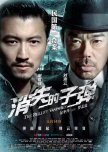
The Bullet Vanishes
18 personnes ont trouvé cette critique utile
The Bullet Vanishes is one of the better Mystery/Crime films produced in China in the recent years. The plot was so solid and quite twisty. The film was a long mysterious journey to catch the “ghost bullets” shooter with one of the smartest and brightest detectives in that era. I have to mention that I loved the use of the 30’s period as setting. The cinematography and directing deserve loud claps; Lo Chi Leung did a splendid job with this film’s visuals.
Throughout the whole film, you will find yourself wondering about the criminal’s way of killing; he’s one smart murderer who uses the technique of “Ghost Bullets”, the bullets that kill but then disappears. The curse and the fantasy side come to light as the most probable solution for this difficult case but detective Bao and detective Guo decide to go through a mysterious journey to uncover the killer’s trick as well as his identity. What also attracts the intention and worthy to be mentioned is the reality of events; although there were action sequences, none of them was exaggerated in a way that would seem fake which is extremely appreciated. I like action movies that keep it real.
This film is an absolute crime thriller that’s full of mesmerizing suspense and genius mystery built up that made the journey quite exciting and intriguing to follow. Throwing significant hints every once in a while was a major strength point that counts for this film’s screenwriting. You may find yourself comparing this to Sherlock Holmes’ films at many occasions.
The acting was High-Class. I am familiar with Nicholas Tse and as usual, he didn’t disappoint; that guy’s charisma is no joke while the veteran Lau Ching Wan was absolutely great for this role. The characters ’involvements in the events’ development deserves the praise; every character in this film had its own role in the mystery/suspense built up and the search for the truth. They created magnificent harmony that gave the plot a great appeal.
I am not saying that this film is perfect by any mean since it had its own clichés of paring an experienced detective with a younger hot-shot or the somewhat “stolen” twist at the end but that doesn’t deny the fact that this is a great detective thriller.
Watch this if:
-You like Crime Thrillers that are full of suspense.
-You like hardcore mysteries that keep you wondering all the way; this is a film created for mystery lovers.
-You’re in the mood for a dark and intriguing story.
-You’re in a mood for a great detective/investigation ride.
-You like Nicholas Tse; his fans shouldn’t miss this one.
Do not watch if:
-You dislike stories that focus on mystery built up more than anything else.
-You’re looking for a light film. Although there’s romantic interest, it’s absolutely meaningless for the film’s general vibe. In my opinion, it was useless for this type of film.
In the end, I can only say that this film is a thriller ride that relies on a well-written mystery which I believe it was very intriguing and fun to follow despite its flaws. It gets a well-earned 8,5/10 from me.
Cet avis était-il utile?
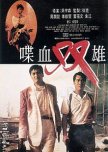
To start with, you need to know that this was made in the late 80’s so it’s useless to compare it to recent action films that use progressed techniques. And despite that fact, The Killer puts many recent Hollywood films to shame. I still insist that John Woo created his masterpieces in Hong Kong; he never made a film of “Hard Boiled”, “A Better Tomorrow” or “The Killer” caliber in Hollywood except for “Face/Off” perhaps.
This film’s plot is rather simple: an assassin who’s thinking twice about his career, a hot-blooded police officer, a singer who went blind and the bad guys. But being simple doesn’t mean it was shallow. On the contrary, The Killer had too much depth to rely on which made some people complain that it was a bit too “melodramatic”. I disagree on that thought, because the little drama in this film helped the events’ flowing in a natural way and of course, John Woo never misses a chance to display his favorite themes: Loyalty, brotherhood and honor.
The core of this film, on the other hand, is the essence of action. Personally, I consider John Woo one of the better Action directors in the world if not the best. The man redefined the “action camerawork” and the violent heroic bloodshed films which inspired many other famous action directors around the world. As a usual dish of John Woo, the gunplay choreography was mind blowing especially the last sequence of the film; it was pretty marvelous. Needless to say, this is a violent film where cars exploded and bullets were flying everywhere.
The acting was high class. Chow Yun Fat sparkles in John Woo’s films in a way that makes me think that he’s probably the best male lead Woo ever had. The man has a great onscreen presence that proves his great acting skills. And let’s not forget Danny Lee who made his breakthrough in Hong Kong cinema through this film and it’s undeniably one of his best roles up to date.
As for the main characters, they were violent which makes you think that they’re immoral but that’s not the case. John Woo always makes his main characters cool and “The Killer” wasn’t any exception, the two characters are drawn in a way that you would feel their nobility, acts of honor, loyalty and friendship. The rest of the characters were also pretty well written and suited for the film’s storytelling.
The cinematography and camerawork were astounding and quite alluring. It doesn’t even matter if this film was made back in 1989. And yes, it’s a great rewatch material; I am writing this review basing on my latest rewatch session of this film.
Watch if:
-You like action films because this is most definitely one of the best.
-You like John Woo because this is one of his Hong Kong masterpieces.
-You like violent films with lots of gunplay.
Do not watch if:
-You dislike John Woo’s work.
-You dislike the action genre.
Cet avis était-il utile?

























